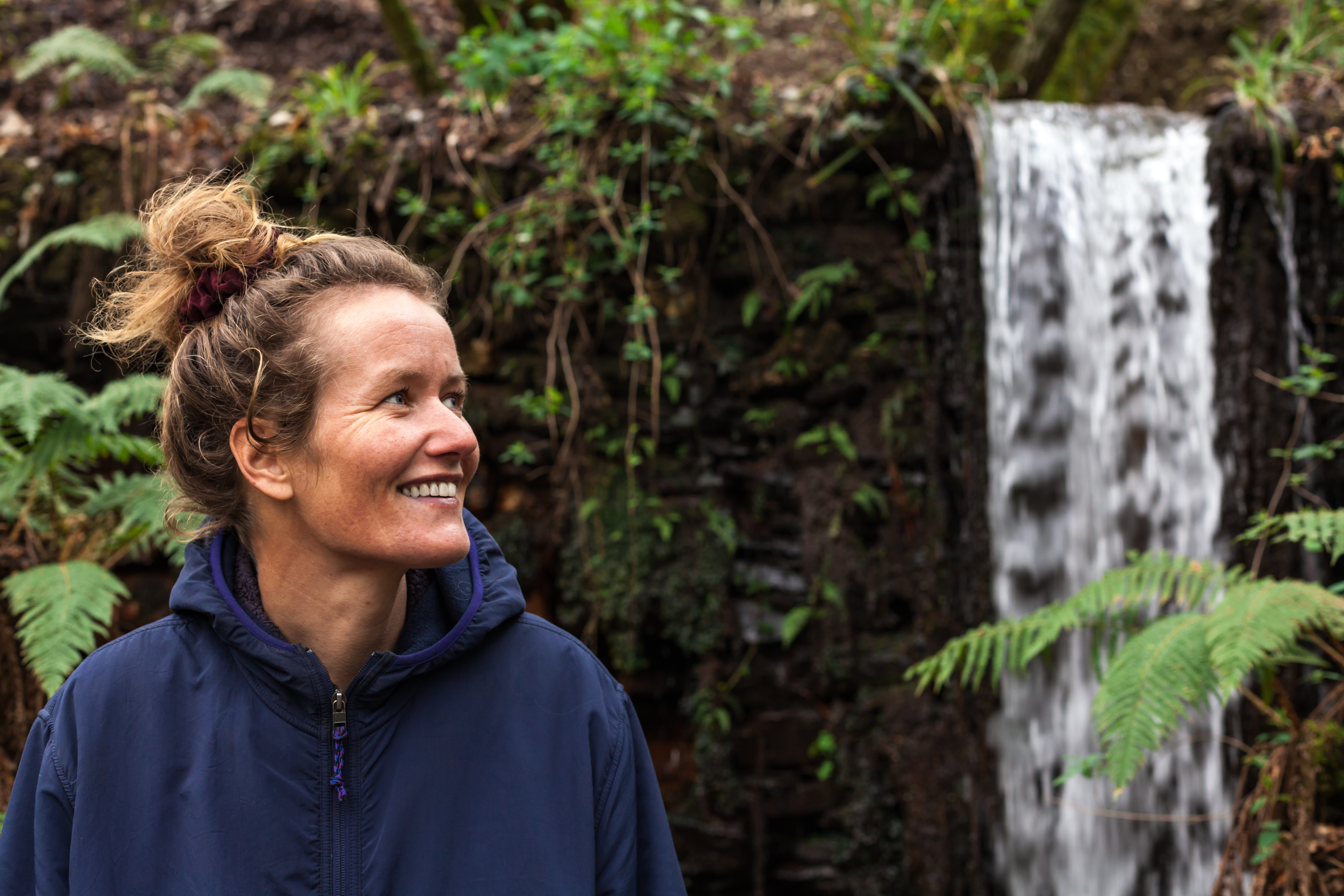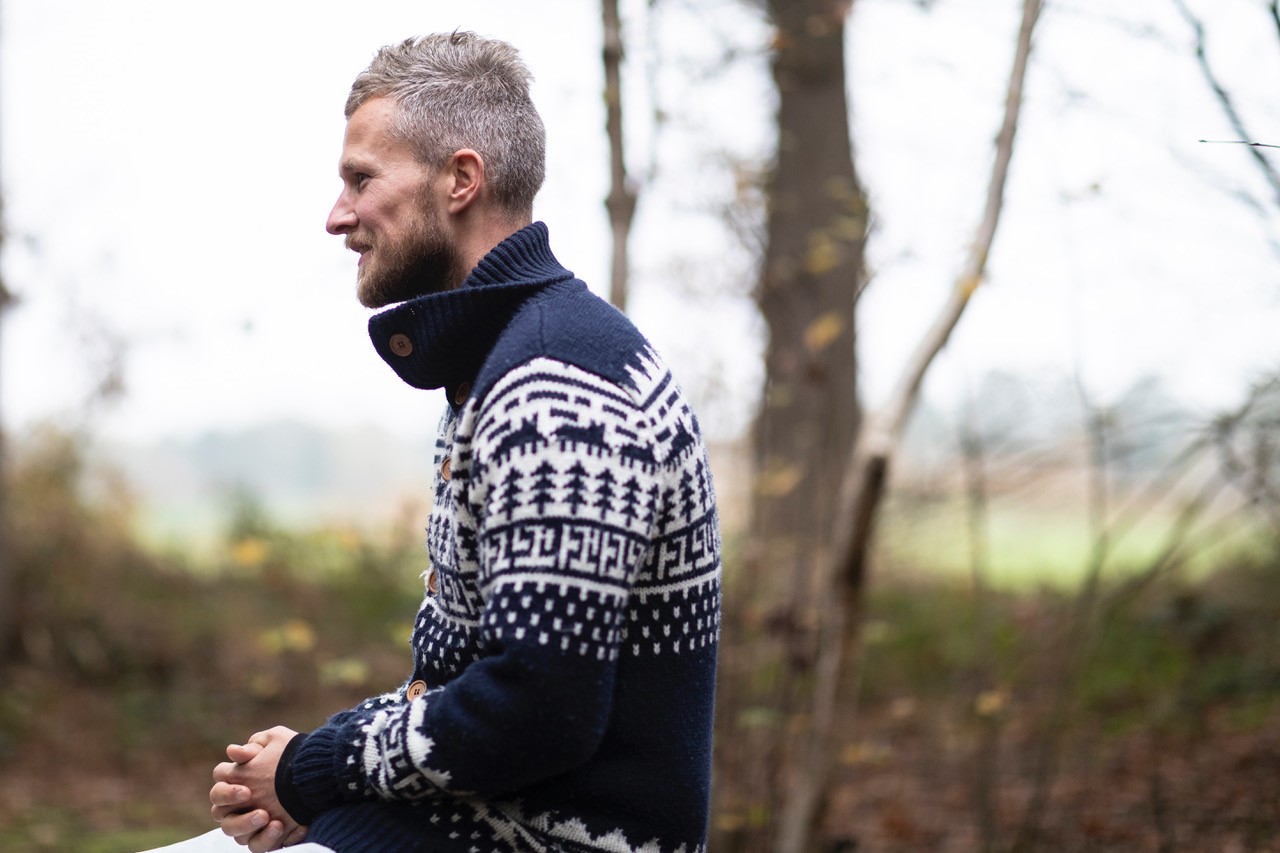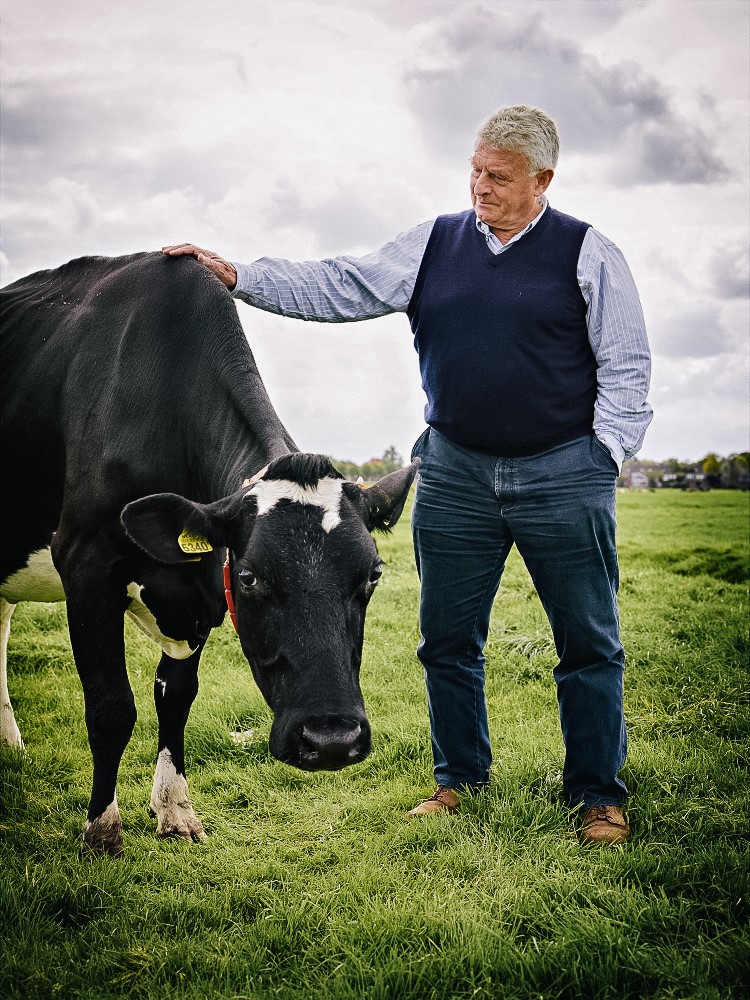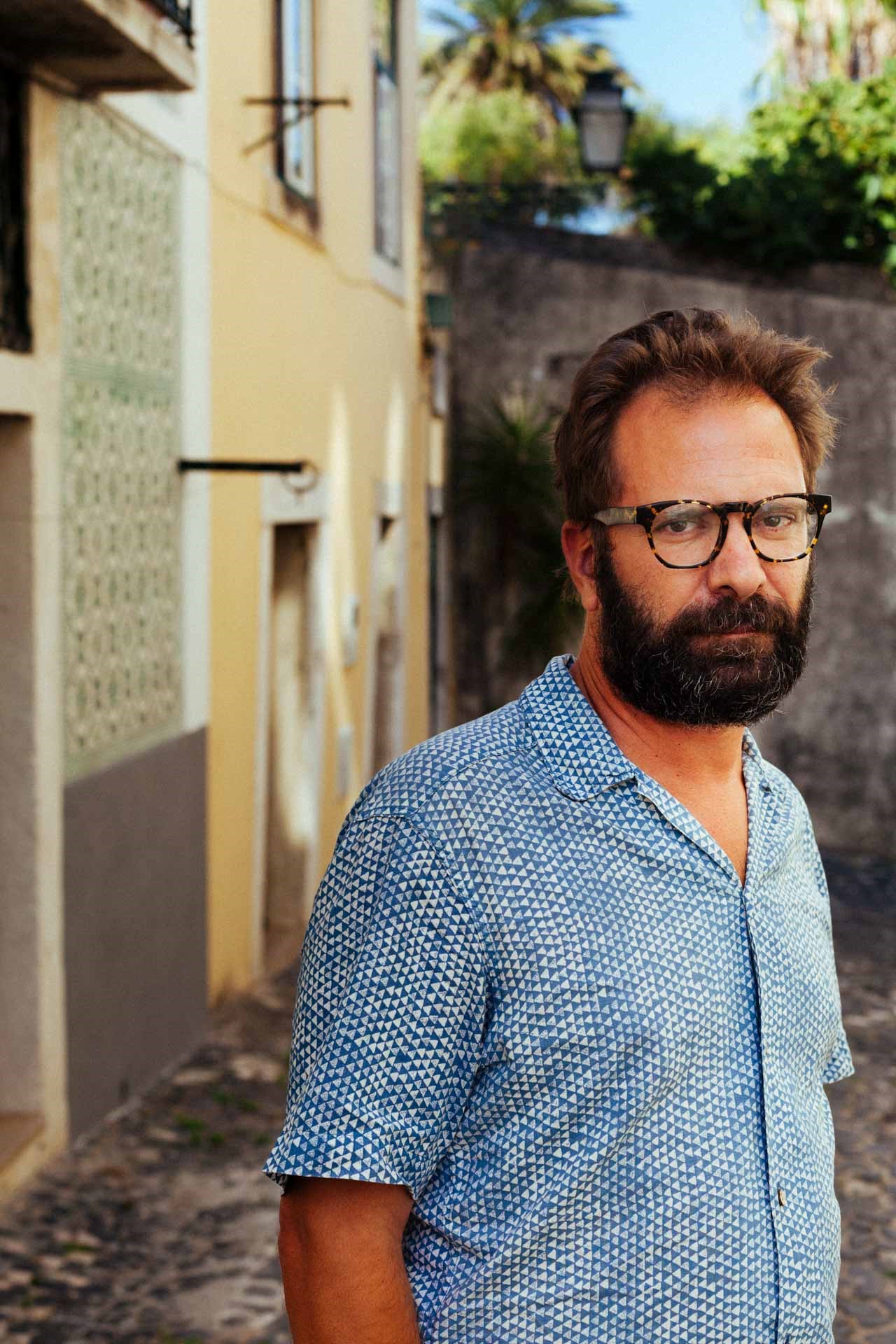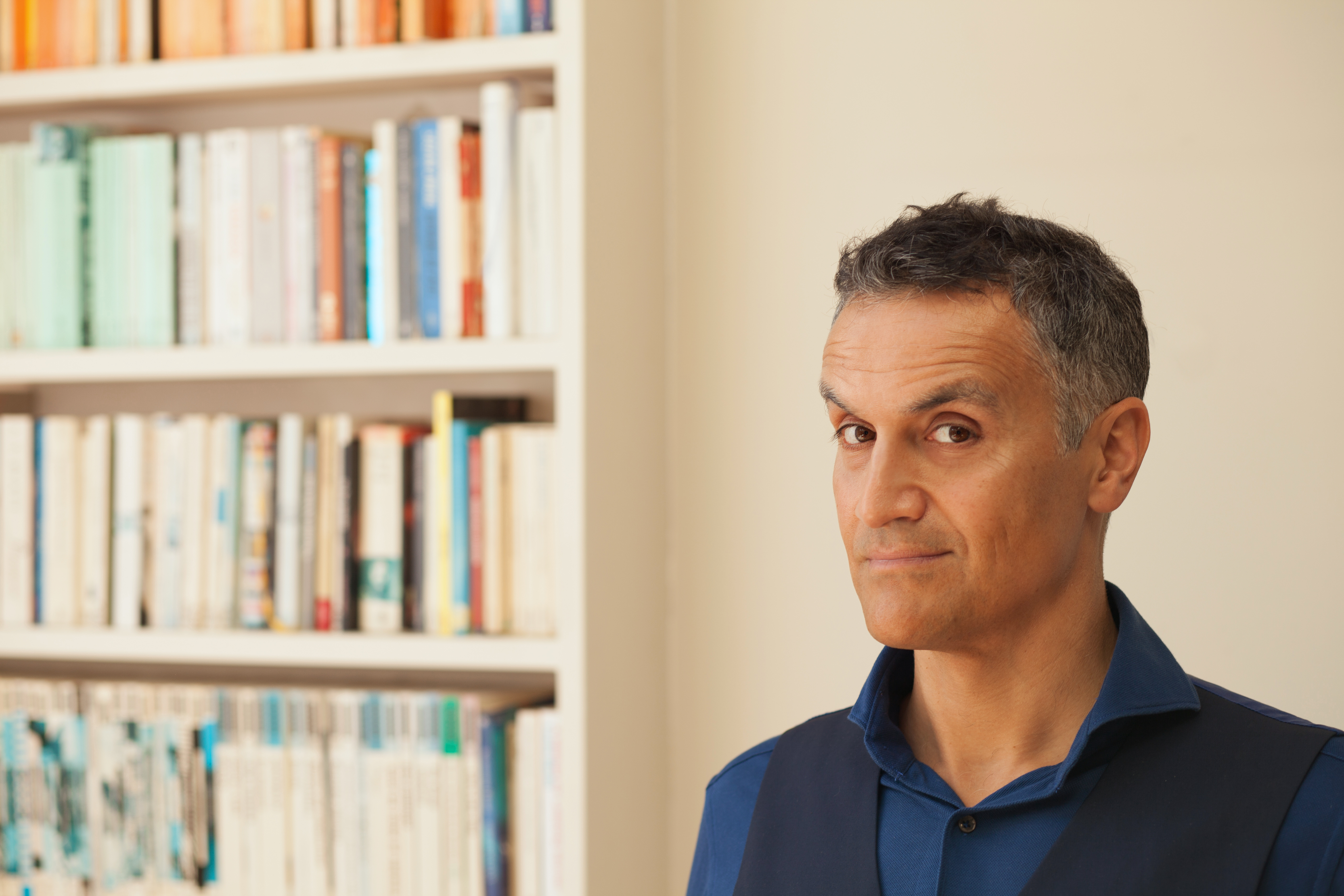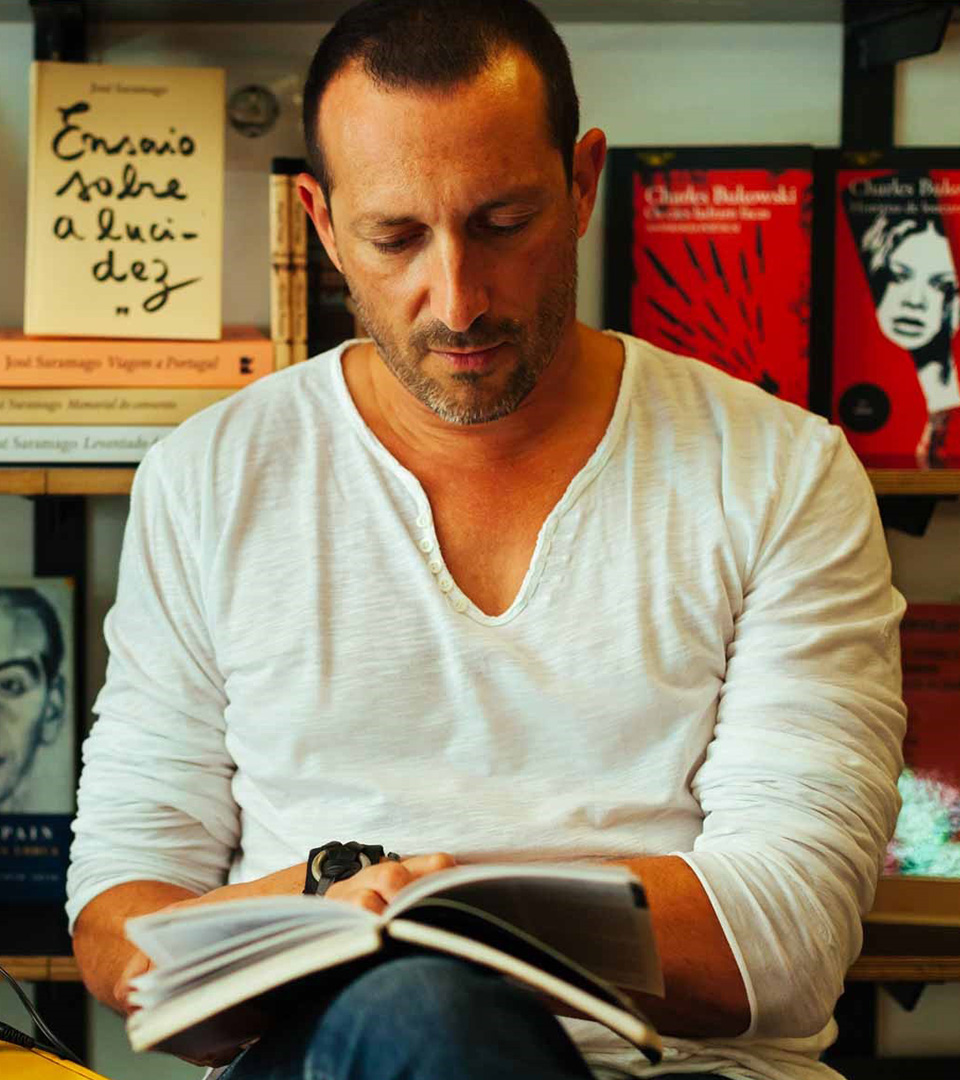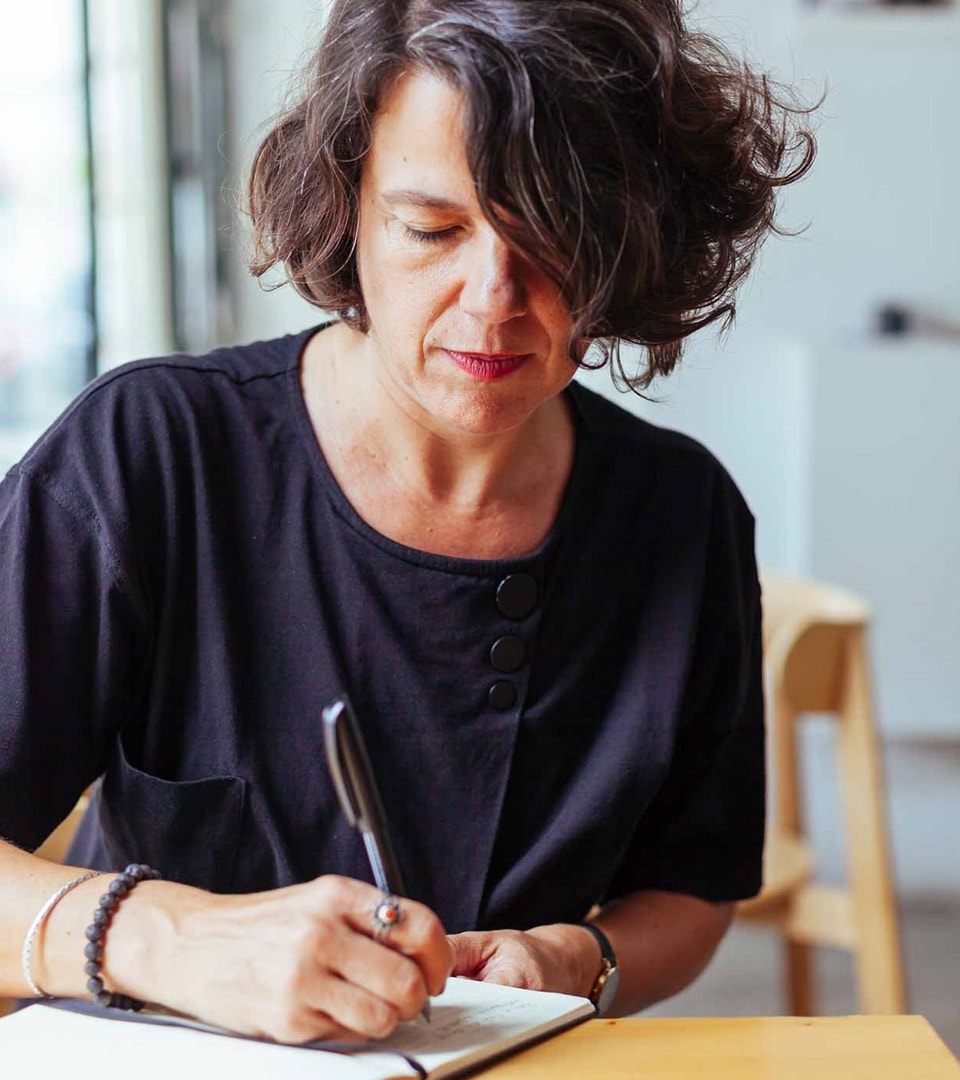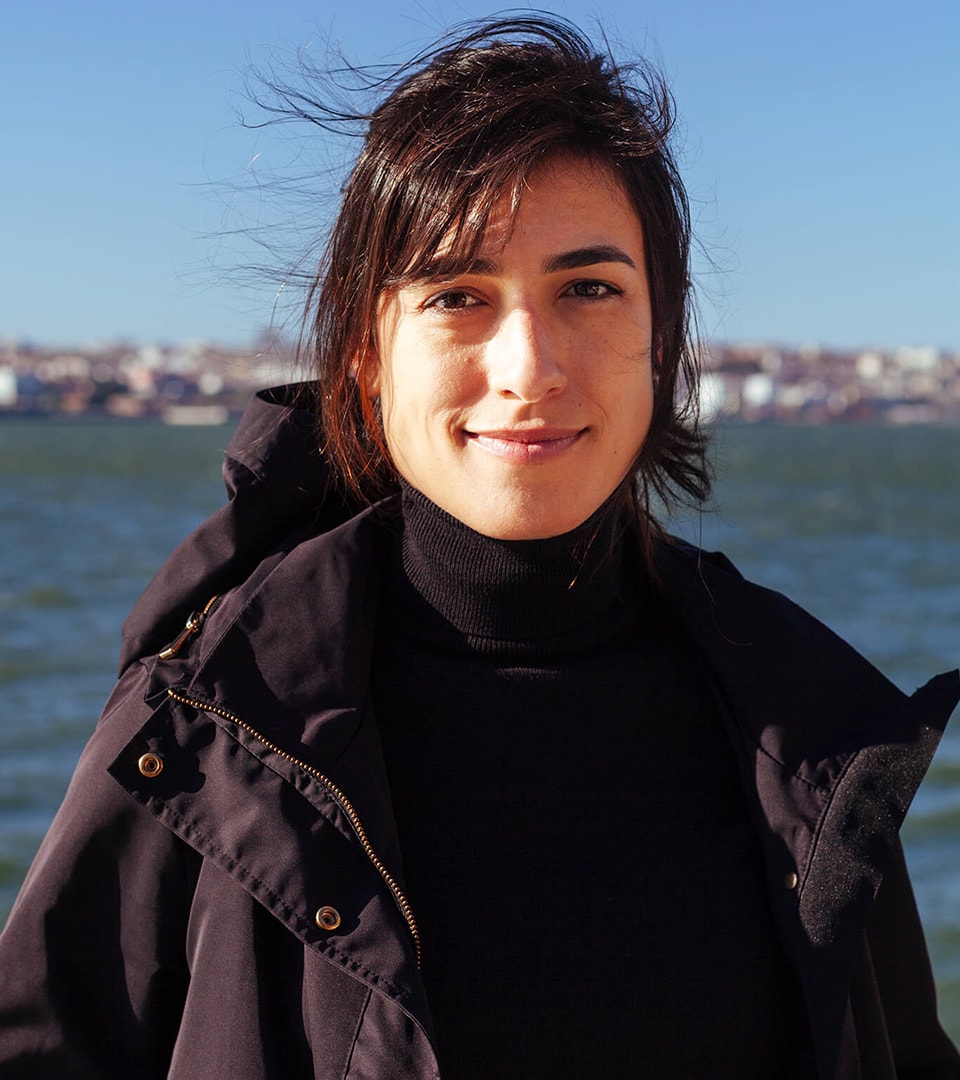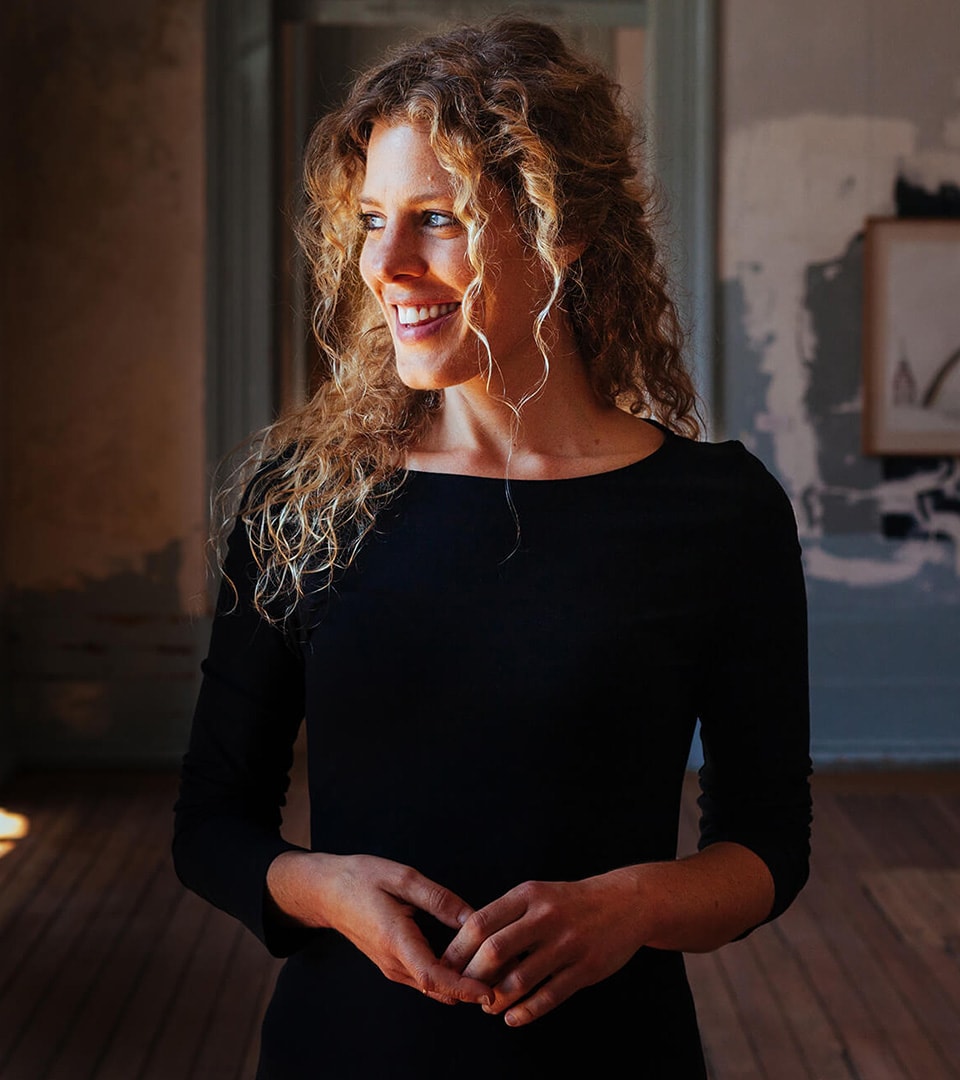DJ Aardvarck
The DJ that swapped the nightlife for a quieter life
Most people know Mike Kivits primarily as the legendary DJ and producer Aardvarck, one of the founders of the current alternative dance scene in Amsterdam. He left the Netherlands 10 years ago, with a stint in Bali, and ended up in Portugal.
He now lives there permanently, in the beginning out of a tent, now in a caravan. He’s been without electricity for three years. “I live and work in silence. Furthermore, I actually have nothing at all. Still, my life is getting richer.”
"I live and work in silence. Furthermore, I actually have nothing at all. Still, my life is getting richer."
"What is beautiful or ugly? What is something? The answers are different everywhere."
"I want to give people a 1-on-1 experience with nature. I know so many urban people who need it."
"For me, it's about being closer to yourself and nature, because it’s only when you do nothing at all that you find yourself."
"Medicine, meditation, throw everything away! It's that simple. If you can let go of everything, that is the ultimate freedom."
First of all: why so radical? “At a certain point, I was completely done. I banished everything that distracted me from my life. No media, no books, not even a house. Nothing at all, just myself out in the open air. That’s how my mind started to loosen up. I began to write, something I’d never done before, and I got lost in all the thoughts I had. The fact that I am only now writing for the first time makes me look at words like a toddler. That is inspiring and confusing. I write in a kind of shorthand, using just keywords. I see the words as steps: I start somewhere and then step to something else. That’s really clear to me, others just don’t understand that.”
What was your greatest revelation by living this way? “If you live outside of your own society and you look at that environment from a distance, then you see that world as a kind of vacuum of information. That life in that space is so strange. There are only norms, laws and rules. But I began to question what exactly is that standard? What is beautiful or ugly? What is something? The answers are different everywhere.”
How can you survive outside of society? “When I arrived here as a 50-year-old city monkey, I really didn’t know anything about farming the land. Fortunately, the family I’ve been living with for two years know everything. That man was born in a kibbutz and therefore has a wealth of information. Whether it is about growing vegetables, keeping bees, searching for water sources or another craft. I observe them and learn every day through watching what they do. They also want to give workshops here.”
And what do you want to do here? “I live on a piece of land that I bought a year ago together with that family. My plan is to build a cabin here designed just for one person. I want to give people a 1-on-1 experience with nature. I know so many urban people who need it. Now that idea is starting to take shape.”
Why do you think it’s so important to let people experience that? “I had been suffering chronically with manic depression for 20 years. At one point I had to leave the Netherlands for all sorts of reasons. I went to Bali and my mental complaints disappeared. Simply by changing primary things. I prefer not to look for peace in the spiritual or ideas around enlightenment. I am a monkey, I see things in a sober and simple way. For me, it’s about being closer to yourself and nature, because it’s only when you do nothing at all that you find yourself. You don’t have to read books about that and everyone can apply it to their lives. I want to share that experience with people.”
There are also many people who read self-help books to feel better… “Spirituality has just become a marketing thing. If you allow humanity to improve, you should not, as far as I am concerned, hang on a business model. What we forget is that everyone has access to that information themselves. That’s why I say: Power to the people!”
What would you like to say to people who also want to live outside of society? “Medicine, meditation, throw everything away! It’s that simple. If you can let go of everything, that is the ultimate freedom. I understand that it’s more difficult if you have a house, a job and children, but in theory, everyone can do it. Every person has the ability to make that choice. In principle you are free. I was forced to break out. It’s exciting and scary, but you won’t die if you leave those luxuries. You will get something greater in return.”
Most people know Mike Kivits primarily as the legendary DJ and producer Aardvarck, one of the founders of the current alternative dance scene in Amsterdam. He left the Netherlands 10 years ago, with a stint in Bali, and ended up in Portugal.
He now lives there permanently, in the beginning out of a tent, now in a caravan. He’s been without electricity for three years. “I live and work in silence. Furthermore, I actually have nothing at all. Still, my life is getting richer.”
"I live and work in silence. Furthermore, I actually have nothing at all. Still, my life is getting richer."
"What is beautiful or ugly? What is something? The answers are different everywhere."
"I want to give people a 1-on-1 experience with nature. I know so many urban people who need it."
"For me, it's about being closer to yourself and nature, because it’s only when you do nothing at all that you find yourself."
"Medicine, meditation, throw everything away! It's that simple. If you can let go of everything, that is the ultimate freedom."
First of all: why so radical? “At a certain point, I was completely done. I banished everything that distracted me from my life. No media, no books, not even a house. Nothing at all, just myself out in the open air. That’s how my mind started to loosen up. I began to write, something I’d never done before, and I got lost in all the thoughts I had. The fact that I am only now writing for the first time makes me look at words like a toddler. That is inspiring and confusing. I write in a kind of shorthand, using just keywords. I see the words as steps: I start somewhere and then step to something else. That’s really clear to me, others just don’t understand that.”
What was your greatest revelation by living this way? “If you live outside of your own society and you look at that environment from a distance, then you see that world as a kind of vacuum of information. That life in that space is so strange. There are only norms, laws and rules. But I began to question what exactly is that standard? What is beautiful or ugly? What is something? The answers are different everywhere.”
How can you survive outside of society? “When I arrived here as a 50-year-old city monkey, I really didn’t know anything about farming the land. Fortunately, the family I’ve been living with for two years know everything. That man was born in a kibbutz and therefore has a wealth of information. Whether it is about growing vegetables, keeping bees, searching for water sources or another craft. I observe them and learn every day through watching what they do. They also want to give workshops here.”
And what do you want to do here? “I live on a piece of land that I bought a year ago together with that family. My plan is to build a cabin here designed just for one person. I want to give people a 1-on-1 experience with nature. I know so many urban people who need it. Now that idea is starting to take shape.”
Why do you think it’s so important to let people experience that? “I had been suffering chronically with manic depression for 20 years. At one point I had to leave the Netherlands for all sorts of reasons. I went to Bali and my mental complaints disappeared. Simply by changing primary things. I prefer not to look for peace in the spiritual or ideas around enlightenment. I am a monkey, I see things in a sober and simple way. For me, it’s about being closer to yourself and nature, because it’s only when you do nothing at all that you find yourself. You don’t have to read books about that and everyone can apply it to their lives. I want to share that experience with people.”
There are also many people who read self-help books to feel better… “Spirituality has just become a marketing thing. If you allow humanity to improve, you should not, as far as I am concerned, hang on a business model. What we forget is that everyone has access to that information themselves. That’s why I say: Power to the people!”
What would you like to say to people who also want to live outside of society? “Medicine, meditation, throw everything away! It’s that simple. If you can let go of everything, that is the ultimate freedom. I understand that it’s more difficult if you have a house, a job and children, but in theory, everyone can do it. Every person has the ability to make that choice. In principle you are free. I was forced to break out. It’s exciting and scary, but you won’t die if you leave those luxuries. You will get something greater in return.”
DJ Aardvarck
The DJ that swapped the nightlife for a quieter life
Most people know Mike Kivits primarily as the legendary DJ and producer Aardvarck, one of the founders of the current alternative dance scene in Amsterdam. He left the Netherlands 10 years ago, with a stint in Bali, and ended up in Portugal.
He now lives there permanently, in the beginning out of a tent, now in a caravan. He’s been without electricity for three years. “I live and work in silence. Furthermore, I actually have nothing at all. Still, my life is getting richer.”
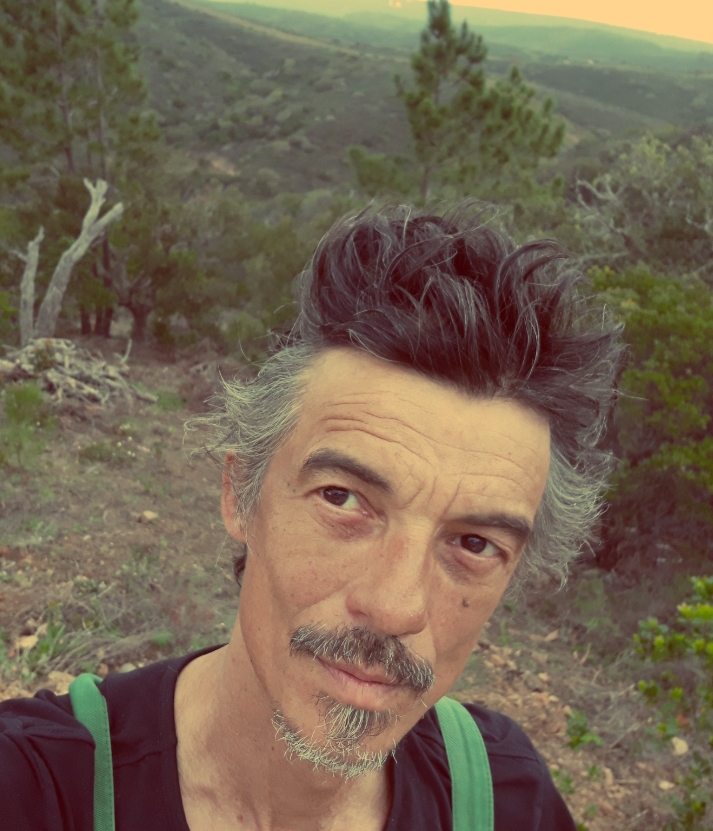
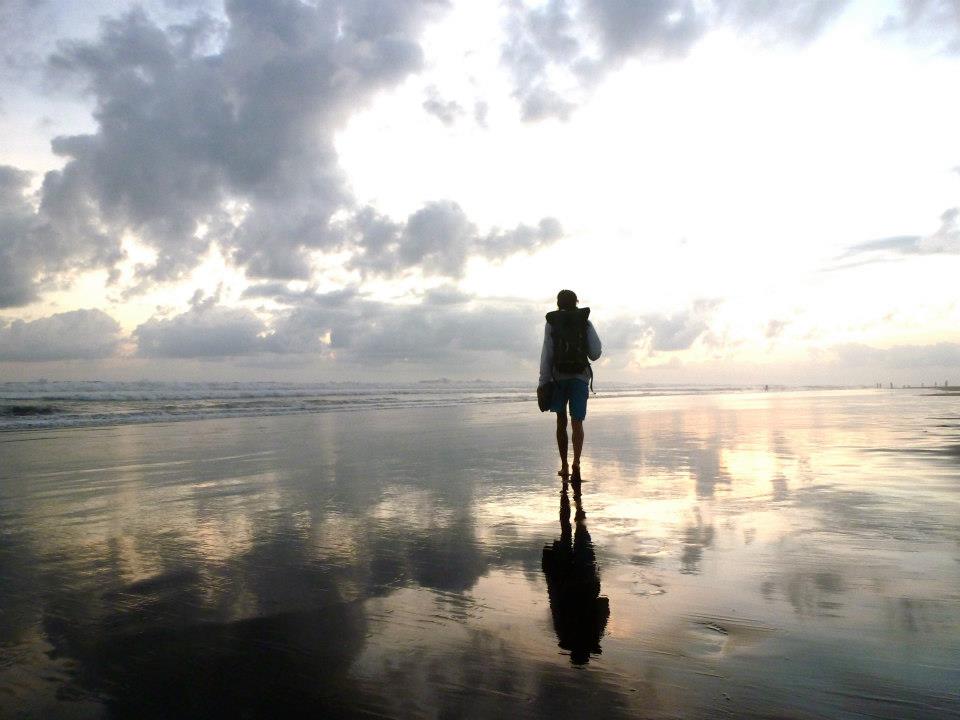
"I live and work in silence. Furthermore, I actually have nothing at all. Still, my life is getting richer."
"What is beautiful or ugly? What is something? The answers are different everywhere."
"I want to give people a 1-on-1 experience with nature. I know so many urban people who need it."
"For me, it's about being closer to yourself and nature, because it’s only when you do nothing at all that you find yourself."
"Medicine, meditation, throw everything away! It's that simple. If you can let go of everything, that is the ultimate freedom."
First of all: why so radical? “At a certain point, I was completely done. I banished everything that distracted me from my life. No media, no books, not even a house. Nothing at all, just myself out in the open air. That’s how my mind started to loosen up. I began to write, something I’d never done before, and I got lost in all the thoughts I had. The fact that I am only now writing for the first time makes me look at words like a toddler. That is inspiring and confusing. I write in a kind of shorthand, using just keywords. I see the words as steps: I start somewhere and then step to something else. That’s really clear to me, others just don’t understand that.”
What was your greatest revelation by living this way? “If you live outside of your own society and you look at that environment from a distance, then you see that world as a kind of vacuum of information. That life in that space is so strange. There are only norms, laws and rules. But I began to question what exactly is that standard? What is beautiful or ugly? What is something? The answers are different everywhere.”
How can you survive outside of society? “When I arrived here as a 50-year-old city monkey, I really didn’t know anything about farming the land. Fortunately, the family I’ve been living with for two years know everything. That man was born in a kibbutz and therefore has a wealth of information. Whether it is about growing vegetables, keeping bees, searching for water sources or another craft. I observe them and learn every day through watching what they do. They also want to give workshops here.”
And what do you want to do here? “I live on a piece of land that I bought a year ago together with that family. My plan is to build a cabin here designed just for one person. I want to give people a 1-on-1 experience with nature. I know so many urban people who need it. Now that idea is starting to take shape.”
